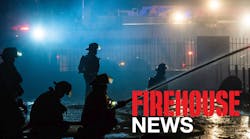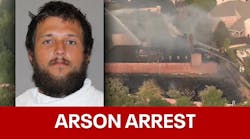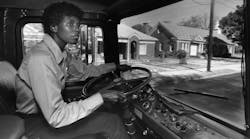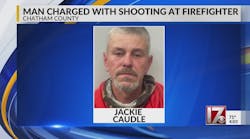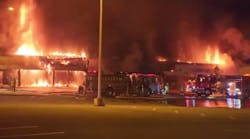While I am a strong proponent of participative management and servant leadership, there are limits to this caring, sharing approach to leading and interacting with your fellow travelers in the fire service. We cannot give free reign to everyone simply because it seems like the fair thing to do. Further, I believe that we have to place an emphasis on the importance of experience.
Over the past decade, I have seen the development of a disturbing trend among the younger members of my beloved fire service. These are the people who learn everything they ever think they will need to know during their firefighter recruit training. They come out of the academy firmly convinced that they know it all.
Ours is a demanding, ever-changing field. There is always something new coming around the corner at you. Whether it involves the latest tool or technology, there is plenty for each of us to learn. It is also a place where the basic skills must be continually reinforced. You cannot stretch a hose or raise and place a ladder once and consider yourself an expert.
Another fallacy involves the supposition that the best firefighter will make the best leader. This never was true, it is just what we thought was right. Running rampant among the "20-minute wonders" is their push for power and position. Some of these instant wonders end up with rank that they make years before their experience and education would dictate such advancement should occur.
Lest you think I am railing against change, let me assure you that this is not the case. None of us can stop change. However, we cannot allow the creation of a mindset that revolves around the belief that instant gratification and instantaneous power and position are good things. I say this for the simple reason that we would be simply setting ourselves up for failure if we allowed this to happen.
A number of factors need to be considered. Each forms a part of the overall fire service operational triangle:
- Training
- Education
- Experience
Each of these taken by itself is an insufficient foundation for success. I have met well-trained people who were not highly educated. You can operate in this environment if the people are willing to listen to the voices of experience and reason. However, when training can be supplemented by education and experience, the road to the future becomes a bit smoother. Here is the ideal sequence of affairs for preparing our people, at least as I see it:
- Find and recruit the right people
- Training under a well-trained staff
- Mentorship by a veteran during the initial work assignment
- A guided system of education in the many aspects of the fire service
- The use of experience in a positive manner; i.e., critiques after each incident to identify good things as well as problems
- Re-reading of the educational materials as a way of reinforcing the good things and overcoming the bad things which were identified during the critique
- Making the whole process a continuing circle of learning, doing, critiquing and retraining
Each of us who wishes to excel must understand the need for learning, performing and improving. The key methods that we should all consider employing are two-way dialogue, practical reasoning, active listening and the simple act of sharing. It may seem trite to tell you all that there is no "I" in "we," but that is as simple as it gets. These "20-minute wonders" act as though the world revolves around them and the minimal amount of knowledge they have absorbed during the minimal amount of time they have been among us.
Many have been the times when my attempts to establish a dialogue have been rebuffed. I guess these folks look at me as one more old fool who has seen his day and should move along and let the members of the new generation do whatever they want. Regardless of how often my efforts are rebuffed, I assure you that I will keep reaching out to share what I know. Most of your cards, letters and e-mails tell me to keep on pitching, so that's what I intend to do.
DR. HARRY R. CARTER, Ph.D., CFO, MIFireE, is a Firehouse® contributing editor. A municipal fire protection consultant based in Adelphia, NJ, he is the former president of the International Society of Fire Service Instructors. Dr. Carter is a past chief and active life member of the Adelphia Fire Company. Currently chairman of the Board of Fire Commissioners for Howell Township District 2, he retired from the Newark, NJ, Fire Department in 1999 as a battalion commander. He also served as chief of training and commander of the Hazardous Materials Response Team. Dr. Carter is vice president of the American Branch of the Institution of Fire Engineers (MIFireE). He recently published Living My Dream: Dr. Harry Carter's 2006 FIRE Act Road Trip, which was also the subject of a Firehouse.com blog. He may be contacted at [email protected].
